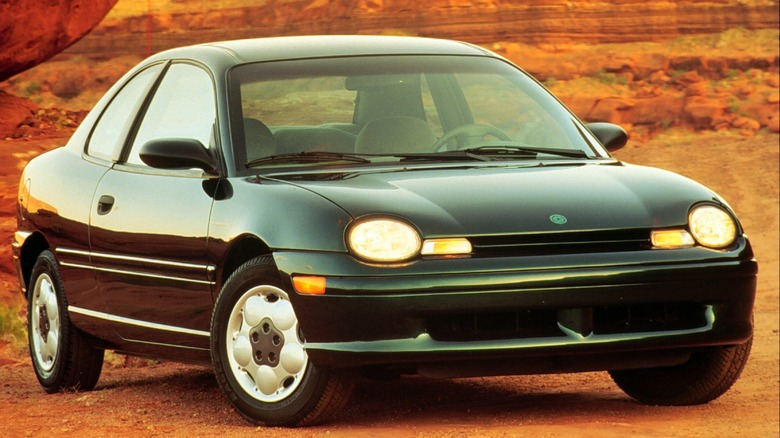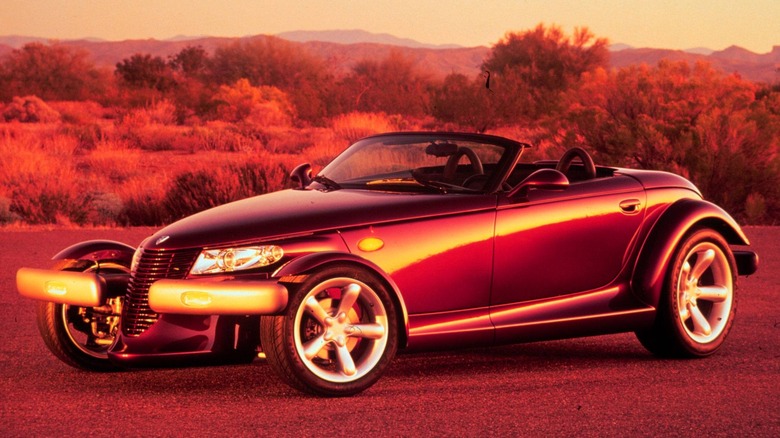Why Chrysler Ultimately Killed Off Its Iconic Plymouth Brand
From the 1960s to the 1980s, Plymouth, a subsidiary of Chrysler (now Stellantis), was on a hot streak. The brand was responsible for the outlandish Plymouth Superbird that changed NASCAR racing forever, as well as the Plymouth Barracuda and subsequent 'Cuda, which dominated the muscle car scene and are still thought as some of the greatest American cars ever made.
In the 1970s, Plymouth hung on like every other American automaker stuck in the Malaise era. However, it was back to the races in the 1980s when Chrysler got a new lease on life, and invented the entire minivan segment in 1984 with the Plymouth Voyager.
Not even two decades later, though, Plymouth was gone. Like Saturn from General Motors, and Mercury from Ford, Plymouth was given its walking papers. Why did Plymouth, of all Chrysler's brands, kick the bucket? What led to the brand's demise, even after a historic run of extremely well-regarded cars?
It's all about the money
As staid as it may sound, the answer has nothing to do with corporate intrigue, malfeasance from competitors, or even cars so bad it killed the brand, even if the Plymouth Prowler didn't help much. Plymouth went the way of the dodo for one simple reason: Money.
When Plymouth folded in 2000, Chrysler was no longer in its heyday from the 1980s, when it was cruising along with its successful K-car platform and genuinely exciting cars like the Dodge Omni GLH-S. Chrysler was under the tutelage of Daimler, the company that owned Mercedes, and the resulting conglomerate went by DaimlerChrysler. According to a feature in Car and Driver from the year 2000, DaimlerChrysler's president said that Plymouth "did not contribute to that growth."
23 years later, it may seem like a travesty to kill Plymouth, but it makes a little more sense when you look at Chrysler's entire landscape from the time. Dodge had trucks that everyone adored and still adore to this day, as well as the V10-powered and tire-melting Viper. Chrysler was the umbrella's luxury segment with an incredibly popular minivan in the Chrysler Town & Country. Jeep basically functioned as its own brand with the Wrangler, Cherokee, and Grand Cherokee.
Lastly, Plymouth had several rebadged vehicles, as well as the maligned Prowler. That should paint a clear image as to why it was axed. It would take more than warmed over, rebadged sedans and vans to keep the brand alive.

